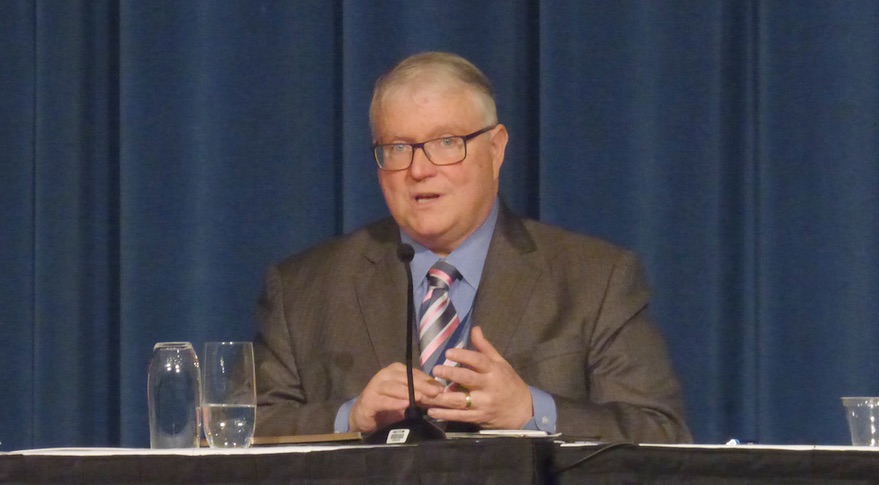Products You May Like
SAN FRANCISCO — Copernic Space, the latest company to bring Kevin O’Connell onto its advisory board, is unlike other ventures the former director of the U.S. Office of Space Commerce has joined.
In contrast to the space situational awareness and space traffic management startups O’Connell tends to work with, Copernic Space has the lofty ambition of creating what the startup calls “the economic operating system for space in the digital economy.”
The vision is a combination of Amazon’s e-commerce platform and Robinhood Market’s commission-free trading application for space, said Grant Blaisdell, Copernic Space CEO and co-founder.
“The other companies that I’ve been supporting are developing the infrastructure for the space economy,” said O’Connell, who established Washington consulting firm Space Economy Rising after leaving the Commerce Department last year. “The space economy is accelerating and diversifying. We’re starting to see companies use, leverage, experiment with space that have never had anything to do with space before.”
Increased participation in the space sector is leading to another wave of innovation, O’Connell said. “What Grant and the team of Copernic are doing is really establishing yet another aspect of the key economic infrastructure for this,” he added.
The Copernic Space Platform is designed to make it easy for people to acquire, access, buy and sell space assets, payloads, venture tokens and services.
The first asset up for sale on the blockchain-powered platform is tokenized payload on a Lunar Outpost’s Mobile Autonomous Prospecting Platform (MAPP) scheduled to travel to the moon’s south pole on an Intuitive Machines lunar lander. Lunar Outpost is selling a portion of the MAPP’s cargo capacity through the Copernic Space Platform.
People can buy the rights to send a physical payload to the moon or they can acquire a fraction of the payload, which they can later resell. Copernic seeks to break down the barriers to participation in the space economy, Blaisdell said.
While non-fungible, meaning unique, digital tokens are an important piece of the business Copernic is establishing, they are only one aspect of it.
“Not everybody can pay for suborbital flight, not everybody can afford a satellite image,” O’Connell said. “With the approach that Copernic is taking, people will have access to these capabilities in ways that they’ve never had before, but that they will need in order to fuel the $1 trillion to $3 trillion space economy that that we’re all talking about.”
Copernic Space is seeking O’Connell’s advice on the overall space market and various sectors as the company works to create the digital interface standards that will make them easier for customers and investors to discover, buy and sell space-related assets.
“The issue with the space economy, to be honest, is that the transactional nature of it has no scalability,” Blaisdell said.
The market for satellite data, for example, is segmented.
“How do we streamline that, so I can buy the license digitally, request the data I want and, if the request is approved, download the data,” Blaisdell asked. “Maybe I don’t use my full license and can resell half of my license.”
Copernic Space calls itself a Web3 digital platform. (Web3 is a popular term for a future internet that is based on blockchain and decentralized unlike the current internet, which tends to be dominated by major technology companies.)
“We’re excited for Kevin O’Connell to join the Copernic Space team,” Blaisdell said in a statement. “Someone of his stature standing behind what we do only makes us feel stronger about working to become the economic operating system for space in the digital economy … His extensive knowledge and hands-on collaboration with us will expand our effectiveness within the space industry and wider new space economy.”
